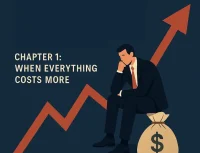You don’t need a lawyer for every workplace headache. But some problems are legal problems, not just HR problems. The trick is spotting the difference early—before evidence disappears or deadlines run out. If you’re in Los Angeles and something feels off, here’s a plain-English guide to figure out when to bring in counsel, what to do first, and how to keep options open while you sort it out.
Do I Need an Employment Lawyer? Quick triage for LA workers
Start with three questions.
Money: Are you losing wages, overtime, commissions, PTO, or a promised bonus? Any sudden deduction you can’t explain?
Protection: Is a protected issue in play—harassment, discrimination (race, sex, disability, age 40+), pregnancy or medical leave interference, whistleblowing, or retaliation after you reported something?
Power: Is there a power mismatch that makes fair negotiation unlikely—like your boss or HR being the subject of the complaint, or a “performance plan” that arrived right after you spoke up?
If you’re nodding to any of these, a short consult is worth it. Lawyers help you map facts to the right law, choose the correct agency path, and keep you from sending an angry email that later gets Exhibit-A’d against you. If your issue is a simple payroll error, start with a calm, dated message to HR asking for a correction and a timeline; escalate only if it stalls.
For a sense of what help looks like in practice—including demand letters, agency filings, and negotiation strategies—review practical employment dispute support resources to see typical remedies and documentation checklists.
Deadlines and first moves in Los Angeles (don’t miss the clock)
California has specific admin steps before most lawsuits. For discrimination, harassment, and retaliation under California law, you generally begin with the state’s Civil Rights Department (CRD). You can request an immediate Right-to-Sue letter or ask the agency to investigate; their page explains coverage and timelines in plain English: California Civil Rights Department – Complaint Process.
If your dispute is about wages or overtime, your lane might be the Labor Commissioner (state) or the federal Wage and Hour Division. When you’re not sure which path fits your facts, a quick read of the federal complaint FAQs helps you decide whether to file state, federal, or both: U.S. Department of Labor – Wage & Hour Complaints FAQ.
Two practical moves while you decide:
- Write a dated timeline (who/what/when/where; keep it neutral).
- Gather documents into one folder—pay stubs, schedules, performance reviews, emails, texts with timestamps, screenshots of portals, and any policy cited against you. Clear records beat heated arguments every time.
What an employment lawyer actually does (and when it’s worth it)
Good counsel starts with triage. They’ll confirm whether you’ve got a policy fix, a negotiation, or a claim. Expect help with:
- Strategy: Which laws apply (state/federal), which agency to file with, and how to preserve your clock.
- Messaging: Drafting a crisp HR email or a demand letter that’s firm, factual, and focused on remedies (back pay, reinstatement, accommodations).
- Evidence: Organizing your documents so they tell a clean story—no speculation, no gaps.
- Negotiation/filings: Handling CRD/EEOC filings, interviews, and settlement talks so you’re not learning procedure on the fly.
When is it worth it? When stakes are high (termination, big wage losses, career impact), when retaliation risk is real (hours cut after you complained; sudden write-ups), or when you’ve hit a silence wall with HR.
Costs, alternatives, and finding the right fit
Not every case needs full representation. Many attorneys offer short paid consults to game-plan next steps; some take contingency matters depending on the claim. If you’re keeping doors open while you look for a new role, keep your search moving. A steady pipeline helps both your finances and your leverage. For example, you can sift relevant postings and research employers through WhatJobs while counsel works the legal side.
Prefer a lighter touch first? Try a “calm facts + clear ask + deadline” email to HR. If you get a good-faith fix, great. If you get evasions, you’ve already built a record that makes counsel’s work faster (and cheaper). And if your issue crosses state lines or implicates federal law (e.g., FLSA overtime), review the federal path above to keep options open even as you explore state remedies.
How to prepare before you call a lawyer
Preparation doesn’t require legalese. It requires order.
- Timeline: One page, reverse-chronological. Dates, decisions, who decided, and any protected activity you engaged in (e.g., “11/4: emailed HR re: overtime; 11/7: hours cut”).
- Documents: Label files sensibly—“2025-07-paystub.pdf,” “2025-06-PIP.pdf,” “2025-08-manager-email-quota-change.png.” Don’t edit; keep originals.
- Goals: What outcome would actually help? Back pay? A clean reference? Policy changes? Accommodation? Clarity here keeps negotiations practical.
- Comms: Draft messages like a neutral third party will read them. That tone—measured, specific, courteous—often accelerates solutions.
If job loss is in play, line up interviews even as you pursue remedies; momentum matters. You’ll find it easier to negotiate when you’re not cornered. And if you need market context (roles, salary ranges), scanning categories and alerts on WhatJobs provides a reality check while your claim moves through the system.
Signs it’s time to stop DIY and hire counsel
A few red flags almost always justify bringing in a pro:
- Retaliation tells: After you report, your schedule or commission territory shrinks, you’re suddenly put on a PIP with shifting targets, or your access gets limited.
- Policy vs. practice gap: The handbook promises one process; you’re getting another. Or rules are enforced against you that aren’t enforced against peers.
- “No record” responses: HR insists there’s “no documentation,” but you have emails showing approvals or targets.
- Clock pressure: You’re up against filing deadlines with the CRD/EEOC or wage-claim windows, and you’re not sure which path to take.
- Severance with strings: You’ve been offered money in exchange for a broad release and confidentiality. That’s contract territory; know what you’re signing.
When any of these pop, you’ve likely passed the point where a scripted email will fix it.
What to expect from the process (and how to stay sane)
Most cases don’t become dramatic court battles. Many resolve through administrative processes or negotiation. While that unfolds, keep doing the basics: perform professionally, document everything, and stay off social media about the dispute. If you need interim adjustments (schedule, supervisor, seating) for safety or sanity, ask for them in writing with a short rationale. Practical, specific requests are easier to grant.
If your matter involves discrimination or harassment, the CRD route is often step one, as noted earlier; if it’s wages, the Labor Commissioner or federal WHD may be right. For discrimination claims that also touch federal law, the EEOC has a clear walkthrough of how charges are filed and investigated, which can help you (and your manager) understand the process: EEOC – How to File a Charge.
Bottom line
If you’re asking “Do I need an employment lawyer?” in Los Angeles, you probably have enough smoke to check for fire. Don’t guess. Write a dated timeline, gather records, and pressure-test your facts against California’s processes. If the stakes are real—or the clock is tight—get a brief consult and let a professional steer the legal side while you keep your career moving through resources like WhatJobs. Calm steps now beat costly fixes later.




